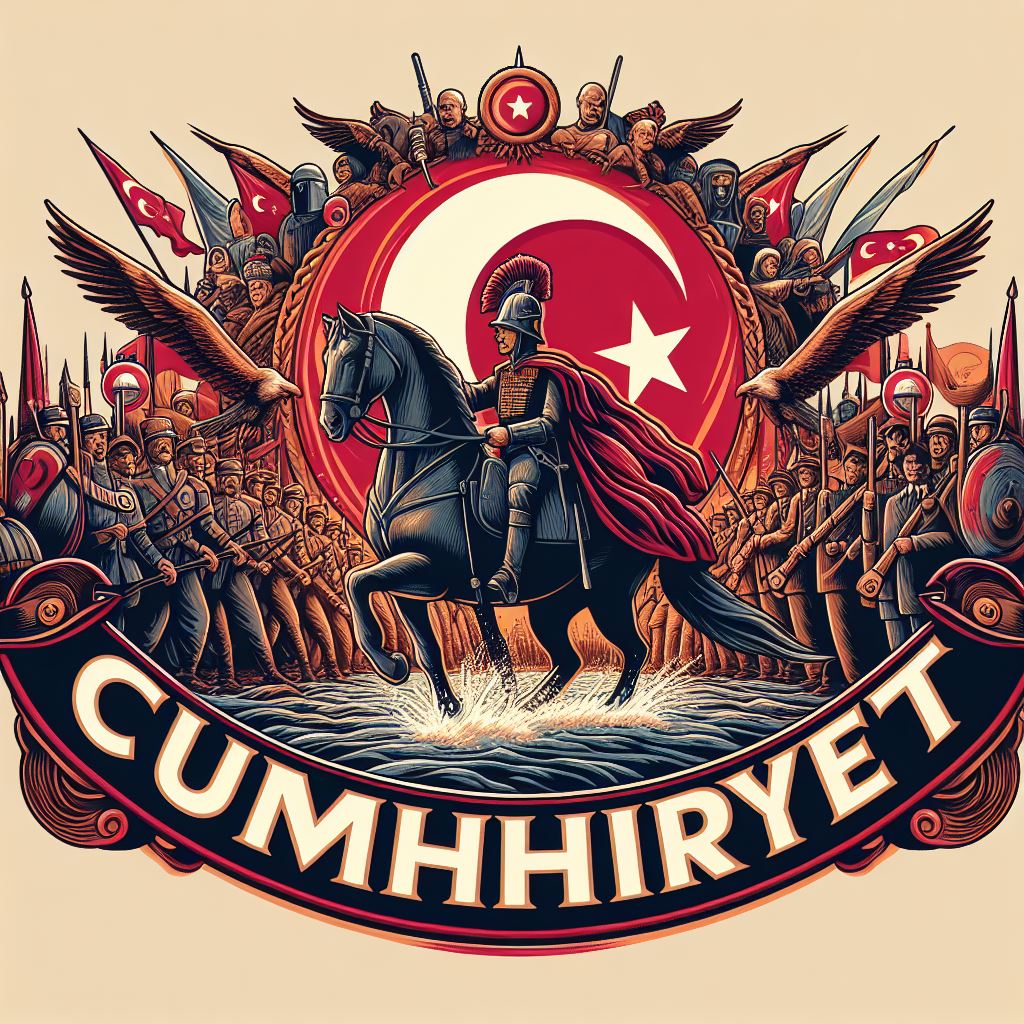Mustafa Kemal Atatürk, the founder of the Republic of Turkey, is known for his significant contributions to the modernization and secularization of the country. One of his most notable achievements was the establishment of a secular state, known as cumhuritey in Turkish. In this article, we will explore the concept of cumhuritey and its importance in the history of Turkey.
What is Cumhuritey?

Cumhuritey is a Turkish term that translates to “republic” in English. It refers to the form of government established by Mustafa Kemal Atatürk in 1923, after the collapse of the Ottoman Empire. Atatürk’s vision for the new republic was to create a modern, secular, and democratic state, free from the influence of religion.
The establishment of cumhuritey marked a significant shift from the previous system of government in the Ottoman Empire, which was based on Islamic principles and ruled by a caliph. Atatürk believed that a secular state was necessary for Turkey to progress and become a modern nation.
The Principles of Cumhuritey

Atatürk’s vision for cumhuritey was based on six fundamental principles, known as the Six Arrows. These principles were:
- Republicanism: The belief in a democratic form of government, where the people have the power to elect their leaders.
- Nationalism: The idea of a united nation, free from foreign influence.
- Populism: The principle of governing for the people and by the people.
- Secularism: The separation of religion and state.
- Statism: The belief in a strong central government.
- Reformism: The idea of constantly improving and modernizing the country.
These principles were enshrined in the Turkish Constitution and served as the foundation for the new republic.
The Importance of Cumhuritey in Turkish History

The establishment of cumhuritey was a significant turning point in Turkish history. It marked the end of the Ottoman Empire and the beginning of a new era for the country. Atatürk’s reforms and the creation of a secular state had a profound impact on Turkish society and culture.
Modernization and Westernization
Atatürk’s vision for cumhuritey was to create a modern and westernized nation. He believed that in order to catch up with the rest of the world, Turkey needed to adopt the customs, values, and practices of Western countries. As a result, he implemented a series of reforms that modernized and westernized Turkish society.
These reforms included the adoption of the Latin alphabet, the introduction of a new legal system based on European models, and the implementation of a new education system. Atatürk also encouraged the adoption of Western clothing and the use of the Gregorian calendar.
Separation of Religion and State
One of the most significant changes brought about by cumhuritey was the separation of religion and state. Atatürk believed that religion should be a personal matter and should not interfere with the affairs of the state. As a result, he abolished the caliphate and declared Turkey a secular state.
This decision had a profound impact on Turkish society, as religion had played a significant role in the lives of the people for centuries. Atatürk’s reforms aimed to create a more secular and modern society, free from the influence of religion.
Women’s Rights
Atatürk’s reforms also had a significant impact on women’s rights in Turkey. Under the Ottoman Empire, women had limited rights and were expected to adhere to traditional gender roles. Atatürk believed that women should have equal rights and opportunities as men, and he implemented several reforms to achieve this goal.
These reforms included granting women the right to vote and hold public office, abolishing polygamy, and encouraging women to participate in the workforce. As a result, Turkish women gained more freedom and independence, and their role in society changed significantly.
The Legacy of Cumhuritey
Today, cumhuritey remains a fundamental principle of the Turkish Republic. The Turkish flag, with its red background and white star and crescent, is a symbol of the secular state established by Mustafa Kemal Atatürk.
Atatürk’s vision for cumhuritey has shaped modern Turkey and continues to influence the country’s political, social, and cultural landscape. The principles of cumhuritey are still enshrined in the Turkish Constitution, and the country remains a secular state.
Conclusion
Cumhuritey, the secular state of Mustafa Kemal Atatürk, played a crucial role in shaping modern Turkey. Atatürk’s vision for a modern, westernized, and secular nation has had a lasting impact on Turkish society and culture. The principles of cumhuritey continue to guide the country and serve as a reminder of Atatürk’s legacy.
You may like reading about the following: Media Bzy
